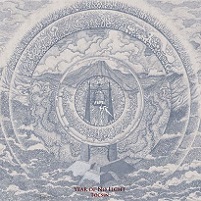This record is all foreplay and no ****ing. To be fair, Year of No Light are much better at their brand of tantalizingly evocative post-sludgeshoe-doomgaze than a 6/10 rating might indicate, but Tocsin ultimately leaves the listener unfulfilled and wondering why they wasted 60 minutes getting worked up if the magic moment never came. YONL are an effective group of instrumentalists when they hit their stride, but waste too much of the audience’s time developing extended themes and not enough time capitalizing on the momentum they create once they’ve got it.
Tocsin drifts through an abandoned, rust-pocked world of crushing emptiness and fractured memories, and is absolutely worth a listen if you like patient, complex music. The almost-upbeat, haunting drive of “Gehenne” kindles a small light in the deepening gloom, making its ultimate unravelling into the muted loss and titanic despondence of “Desolation” all the more visceral. Lurid drums hypnotize, pulsing and racing beneath slow six-string sighs. Layers of ethereal keyboards and lonely reverb rise, contend with, then inevitably fall like crashing waves beneath bottom-heavy mountains of thick, distorted funeral chords. Sounds great, right?
For the most part it is. But there are so many great artists painting with this brush that wasting half an album is unforgivable. Running just shy of an hour, Tocsin has its best moments sandwiched between its two longest and least memorable songs. While opener “Tocsin” does contribute a few undeniably good minutes of gain-soaked riffs and churning dread (skip to the 8 or 9 minute mark), the effect is hampered by its lackluster surroundings. Album closer “Alamut” suffers from a similar unevenness, with genuinely harrowing midway passages struggling to peak out from behind overlong bookends of listless ambient filler.
Several moments on Tocsin rate an 8 or a 9 and deserve an epic conclusion to what could have been an incredible journey through struggle, isolation and despair. Sadly, the lastfour minutes only reinforce the feeling of missed opportunity reverberating throughout the rest of the album, squealing and echoing to a slow fade like the credits score at the end of a movie that wasn’t quite finished.


